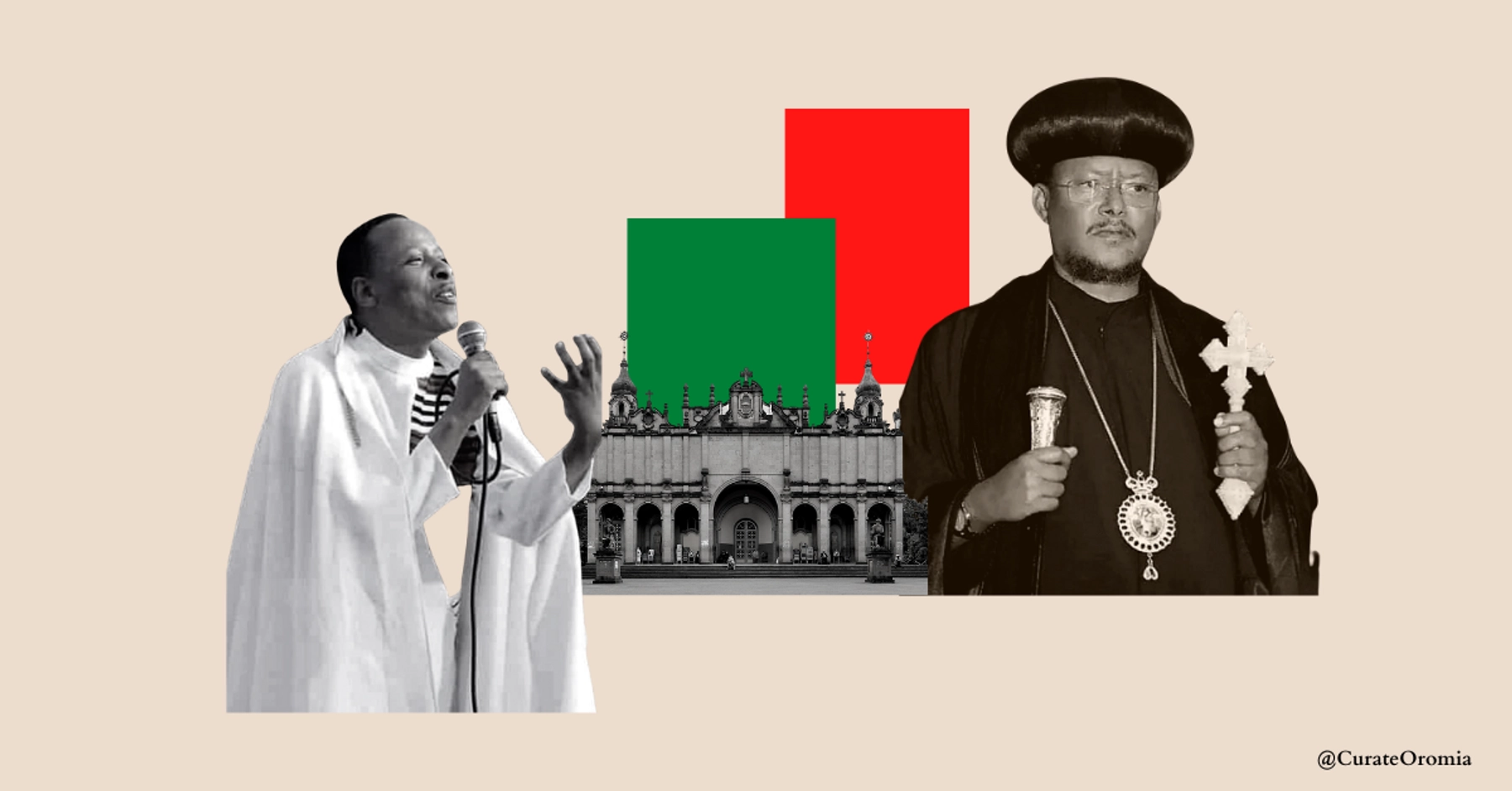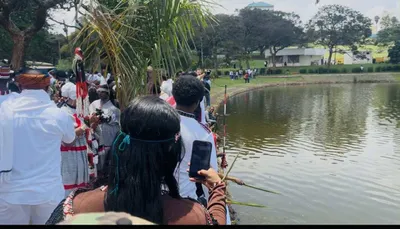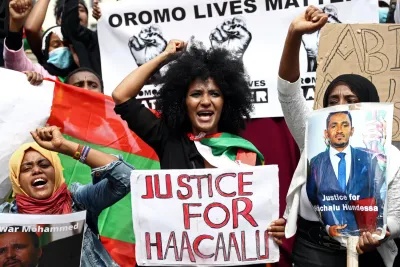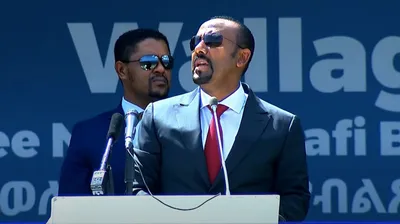All Oromos must support the Oromo Orthodox movement

Ethiopia is about to decolonize its regressive imperial institution— The Ethiopian Orthodox church.
The Oromo movement has gone through two major revolutions that have changed the trajectory of the empire so far. The first is the 1974 student-led revolution that resulted in the “Land to the Tiller” decree, which effectively ended the mainstay of the feudal system. The second is the TPLF-led revolution of 1991, which resulted in the recognition of the right to self-determination, including up to secession, of the nations, nationalities, and peoples in the Empire. Despite the setback in 2018, these two revolutions have contributed significantly to the advancement of the Oromo cause.
Despite the fact that these two revolutions dealt the empire successive, devastating blows, neither landed a fatal punch because neither got to the heart of the empire which is the Ethiopian Orthodox Church (EOTC.)
The Orthodox Church was used by the Amhara elite to establish the Ethiopian empire in the first place, and it has been used to sustain it ever since. As a result, we need a third revolution to finally free ourselves from the yoke of repression imposed by the Amhara elite. The third revolution seeks to end the Amhara elite’s total control of the Orthodox churches in Oromia and the wider south in general.
Why the Church?
The answer is obvious. The Ethiopian Orthodox Church was a state religion in the empire until its relationship was “severed” in the aftermath of the 1974 revolution. It has been “severed” but not completely cut off. Successive Ethiopian regimes that have ruled the empire have claimed to be “secular,” but we all know that this is not true; “secularism” exists only on paper. The Ethiopian state and the Orthodox church, the empire’s oldest and most powerful institutions, have always worked together.
Let me be clear: what I am referring to here is religion as an institution or what is called institutional religion. It has nothing to do with any faith. One of the functional uses of religion is its extremely effective organizing power. Religion has by far the most organizing power of all causes, principles, and social-cultural systems in human life. Modern societies would have not been possible at all without organized or institutional religions. History teaches us that societies that have institutional religions are able to easily create other social institutions that the society needs. Institutional religions are the main engines of society.
Denying a society the right to have institutional religions is denying it the right to organize itself at the most fundamental level. Denying a society its right to control its religious institutions is denying it the very tools it needs to function properly, preventing it from having a powerful tool. This is the reason behind the recent uproar that is coming from the Amhara elite’s camp; they understand that if Oromos seize control of the Orthodox Church in Oromia, they will lose all their privilege not just in Oromia, but throughout the entire broader South.
The crux of the matter
The loss of vast swaths of land or the hundreds of millions of birr the Ethiopian Orthodox Chruch raises annually through tithe, fees, or other forms of levies in Oromia, is not the main reason as to why Amhara elites are lashing out, although that could be one factor. By far the most important reason is ceding the most powerful tool to Oromos; i.e., handing over the control of the Ethiopian Orthodox Church in Oromia to Oromos.
The Amhara elite will go to any length to prevent this from happening. That is why the appointment of new bishops to vacant dioceses in Oromia and southern regional states in the country triggered a political earthquake in the Amhara elite’s camp. No other event in the empire has ever caused such a howl because they know this is a fatal blow if it is allowed to proceed and succeed. We know they will never let it go without a fight.
The Oromo people must also prepare to defend themselves. The heroic move of the three Oromo archbishops and bishops is nothing less than a revolution. Jan. 22, 2023, marks the official beginning of what I call the Third Revolution in the empire.

The Oromo people must unite, rally behind and support the third revolution set off by our gallant archbishops regardless of our religious background.
Some argue that this is an Orthodox Church issue. My response is to the contrary. This is an all-Oromo issue! I, for instance, am not an Orthodox Christian, but I wholeheartedly support the movement. The three archbishops and the newly appointed bishops are my bishops not because I follow the religion but because they are Oromo bishops in the Orthodox Church.
Why the Orthodox Church again? Because it is a state religion in the empire under which Oromia has been colonized and the state controls its subjects through this religious institution. We must take away this tool from the Amhara elite and use it for our own good— and cut the shackles of repression and free ourselves once and for all!
Nothing is more important than this movement right now for all Oromos. To raise public awareness, all Oromo media outlets must devote 100% of their attention to this issue. There is no doubt that if we all work together, we will win.
We need your support
We trust you found something of value in this article. If so, we kindly ask you to consider helping Curate Oromia continue its work.
If you believe in the importance of independent voices and honest reporting, we invite you to support our efforts through our GoFundMe campaign.
Every contribution, however small, goes directly to our writers and the expansion of our reach.
Thank you for your support.



